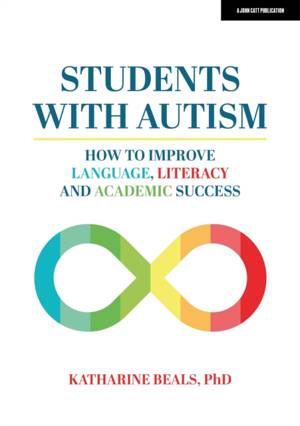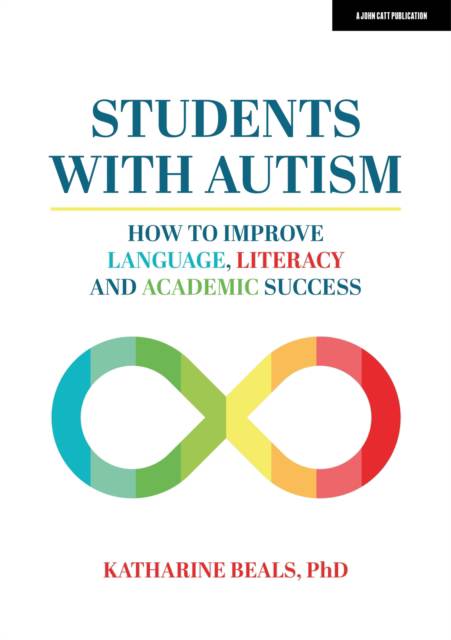
- Afhalen na 1 uur in een winkel met voorraad
- Gratis thuislevering in België vanaf € 30
- Ruim aanbod met 7 miljoen producten
- Afhalen na 1 uur in een winkel met voorraad
- Gratis thuislevering in België vanaf € 30
- Ruim aanbod met 7 miljoen producten
Zoeken
Students with Autism: How to Improve Language, Literacy and Academic Success
Katharine Beals
Paperback | Engels
€ 37,45
+ 74 punten
Uitvoering
Omschrijving
Beals describes the root causes of the language and learning challenges in autism, their various academic consequences, and a variety of tools and strategies for addressing them. Drawing on what the most current evidence shows about the nature of autism and which therapies are most successful, the book discusses the implications for autism-friendly instruction in academic subjects, noting the ways in which today's classrooms come up short, and suggesting various adjustments that teachers can make. Instead of focusing on social and behavioral issues, general accommodations, and general ways to address learning difficulties, Beals zeros in on academics, on accommodations within specific academic subjects, and on techniques that target autism-specific deficits, situating the issue of educational access within the broader context of disability rights, neurodiversity, and debates about what disability rights and neurodiversity should encompass. Complete acceptance of individuals on the autism spectrum must include complete educational access. This means rethinking assumptions about autistic students, about how we teach expressive language, about how we teach reading comprehension, and about what and how we teach in the many K-12 classrooms attended by autistic students.
Specificaties
Betrokkenen
- Auteur(s):
- Uitgeverij:
Inhoud
- Aantal bladzijden:
- 268
- Taal:
- Engels
Eigenschappen
- Productcode (EAN):
- 9781915261373
- Verschijningsdatum:
- 6/09/2022
- Uitvoering:
- Paperback
- Formaat:
- Trade paperback (VS)
- Afmetingen:
- 147 mm x 208 mm
- Gewicht:
- 340 g

Alleen bij Standaard Boekhandel
+ 74 punten op je klantenkaart van Standaard Boekhandel
Beoordelingen
We publiceren alleen reviews die voldoen aan de voorwaarden voor reviews. Bekijk onze voorwaarden voor reviews.











